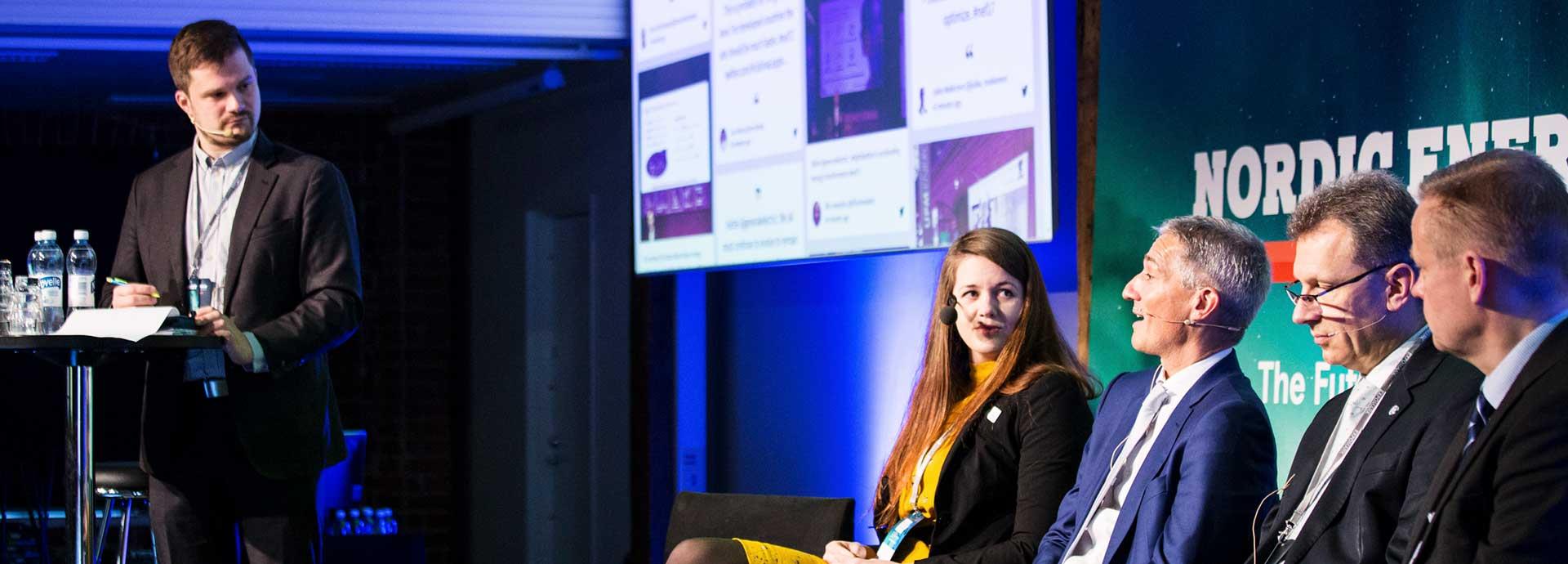

Experts from around the world gathered in Helsinki to discuss the global energy situation and what can be done about our shared challenges.
Business executives, environmentalists, policy makers and researchers gathered at the first Nordic Energy Forum on 14-15 November 2017. The timing couldn’t have been better, as the world news was dominated by major energy announcements ranging from the International Energy Agency’s outlook to the World Energy Council’s warning about missing the Paris climate agreement goals.
“We wanted to establish a forum as a prime platform for dialogue,” says Lauri Muranen, executive director of World Energy Council Finland, which hosted the event. “I’m quite happy with our turnout. We had a target of 200 participants and we ended up with 260.”
“We also have a nice mix of speakers and attendees. It is important to listen to everyone because we have such a range of challenges. For instance, developing countries might be worried about population growth and air pollution, while developed areas are more focused on emissions and the consumption of resources. Many of these can be solved by modernisation and abundant energy.”
Lauri Muranen, executive director of World Energy
Council Finland.
What Nordic policy?
The theme for the first day of the Forum was energy policy and markets. It included presentations and panel discussions on energy trends and policy. The trends were fairly clear, such as falling demand for coal plants and a huge demand for solar energy.
Yet solar is still highly dependent upon subsidies, which come from public policy. One major issue was that there is no such thing as a Nordic energy policy. The Nordic and Baltic energy markets cooperate to some extent, but policy makers do not. The entire emphasis is on the EU and national policies.
“We need to move from market integration to policy integration,” said Pekka Lundmark, CEO of Fortum at the event. “We need to have Nordic policy cooperation.”
Energy policy panel. From left to right: Jari Kostama,
Director, Finnish Energy, Ando Leppiman, Deputy
Secretary General for Energy, Ministry of Economic
Affairs and Communications, Estonia, Riku Huttunen,
Director of Energy Department, Ministry of Economic
Affairs and Employment, Finland, Inge Pierre,
Executive Director, World Energy Council Sweden.
New opportunities
The second day was dedicated to technology and new business ideas. Main topics included the decarbonisation of heat, renewables, transport and new business opportunities. Many of the participants were business representatives who were very interested in new opportunities.
“The more assets you have the more problems you have,” Lundmark laughed. “I’d like to see more asset-light business models.”
“Four hundred million electric vehicles sound great, but imagine all of them plugging in at 7pm when everyone comes home from work,” suggested Hando Sutter, CEO of Eesti Energia. “We could charge these cars late at night when demand is less by using new smart systems.”
The atmosphere of the Nordic Energy Forum was relaxed.
Wärtsilä’s hybrid solution
Javier Cavada, President of Wärtsilä Energy Solutions, was on hand to talk about Wärtsilä’s type of smart systems. These include Smart Power Generation for data centres, combined heat and power solutions, and something he is very excited about: hybrid power and energy storage.
“Everyone is investing in renewables like wind and solar, but these are unpredictable sources of energy,” Cavada says. “If production from these sources suddenly drops, our natural gas plants can adapt within seconds. We have successfully integrated natural gas with renewables in a flexible hybrid system.”
“Storage is also important. We create grid-scale energy storage systems and integration solutions. You need smart technology to handle more renewables and higher price volatility. We now have the technology to make renewables work.”
Respectful disagreements
Renewables and technology came up again and again during the Forum, but there was by no means a consensus on what were the best ways forward. At times quite divergent views were expressed – such as the future of nuclear energy – but the delegates were polite and respectful even when they disagreed, which the host was quite happy about it.
“I hope everyone enjoyed it,” says Muranen. “We have had a nice, relaxed atmosphere with good discussions. This was exactly what I wanted.”
Did you like this? Subscribe to Insights updates!
Once every six weeks, you will get the top picks – the latest and the greatest pieces – from this Insights channel by email.


